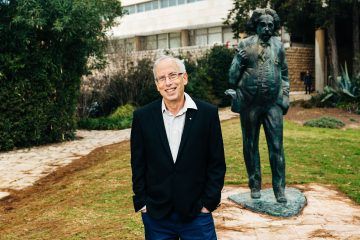 Katia Moskvitch in Quanta:
Katia Moskvitch in Quanta:
Sixteen years ago, on a cold February day at Yale University, a poster caught Gil Kalai’s eye. It advertised a series of lectures by Michel Devoret, a well-known expert on experimental efforts in quantum computing. The talks promised to explore the question “Quantum Computer: Miracle or Mirage?” Kalai expected a vigorous discussion of the pros and cons of quantum computing. Instead, he recalled, “the skeptical direction was a little bit neglected.” He set out to explore that skeptical view himself.
Today, Kalai, a mathematician at Hebrew University in Jerusalem, is one of the most prominent of a loose group of mathematicians, physicists and computer scientists arguing that quantum computing, for all its theoretical promise, is something of a mirage. Some argue that there exist good theoretical reasons why the innards of a quantum computer — the “qubits” — will never be able to consistently perform the complex choreography asked of them. Others say that the machines will never work in practice, or that if they are built, their advantages won’t be great enough to make up for the expense.
Kalai has approached the issue from the perspective of a mathematician and computer scientist. He has analyzed the issue by looking at computational complexity and, critically, the issue of noise. All physical systems are noisy, he argues, and qubits kept in highly sensitive “superpositions” will inevitably be corrupted by any interaction with the outside world. Getting the noise down isn’t just a matter of engineering, he says. Doing so would violate certain fundamental theorems of computation.
More here.
